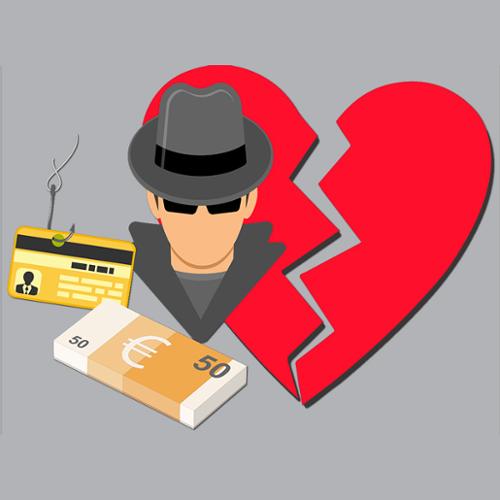Romance Scam

Scammers target victims on online dating websites, but can also use social media or email to make contact.
What are the signs?
- Someone you have recently met online professes strong feelings for you, asking to chat privately.
- Their messages are often poorly written and vague
- They may ask you to send intimate pictures or videos of yourself.
- First they gain your trust. Then they ask you for money, gifts or your bank account/credit card details.
What Can you do?
- Be very careful about how much personal information you share on social network and dating sites.
- Always consider the risks. Scammers are present on the most reputable sites.
- Go slow and ask questions.
- Research the person’s photo and profile to see if the material has been used elsewhere.
- Be alert to spelling and grammar mistakes, inconsistencies in their stories and excuses such as their camera not working. Don’t share any compromising material that could be used to blackmail you. If you agree to meet in person, tell family and friends where you are going. Beware of money requests. Never send money or give credit card details, online account details, or copies of personal documents. Avoid sending them upfront payments. Don’t transfer money for someone else: money laundering is a criminal offence.
Are you a Victim?
- Don’t feel embarrassed!
- Stop all contact immediately.
- If possible, keep all communication, such as the chat messages. Report actual or attempted fraud to Action Fraud or, if in Scotland, Police Scotland on 101.
- Report it to the site where the scammer first approached you. If you have provided your account details, contact your bank.

 Greek
Greek





